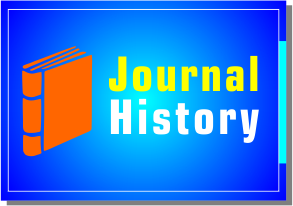Analisis Pemeriksaan Pajak dalam Rangka Optimalisasi Penerimaan Negara di Sektor Perpajakan
DOI:
https://doi.org/10.31334/trans.v7i2.44Keywords:
Tax Audit, National Revenue, Obstacle, SolutionAbstract
The purpose of this study was to determine how the tax audit can optimize revenues in the tax sector, factors that become an obstacle in carrying out tax audits, and any solution that could be recommended to overcome such obstacles. This study used a qualitative approach, by conducting interviews, observation and document study. The informants in this study are stakeholders who understand the implementation of a tax audit as many as six informants. Tax audits to optimize state income in the taxation sector is influenced by several factors, namely legislation which provides clarity, certainty and simplicity that can reduce the dispute regulations, government policy in implementing regulations, administrative system that provides counseling function, care and supervision as well information systems support, excellent service in the implementation of a tax audit, the level of awareness and understanding of the taxpayer to the tax laws, and functional Examiner and professional integrity. There are several obstacles to the implementation of the tax audit, include unrealistic state revenue target in the taxation sector, tax laws have multiple interpretations, limited external data and unintegrated internal data held, the burden of routine inspections are high, the lack of quantity and quality Functional Tax Audit, and lack of official vehicles and operating funds. Solutions to overcome these obstacles, include preparation of the revenue target should be more realistic, tax laws should be drawn with regard to principles of clarity, certainty and simplicity, optimization of Government Regulation No. 31 of 2012, reducing routine inspection, addition of the quantity and quality Functional Tax Audit, and the provision of vehicles service.
References
Hutagaol, John. 2007. Perpajakan: Isu-isu Kontemporer. Yogyakarta: Graha Ilmu.
Rahayu, Siti Kurnia. 2010. Perpajakan Indonesia: Konsep & Aspek Formal. Yogyakarta: Graha Ilmu.
Silalahi, Ulber. 2012. Metode Penelitian Sosial. Bandung: PT Refika Aditama.
Suparmoko, M. 2012. Keuangan Negara dalam Teori dan Praktik. Edisi Keenam. Yogyakarta: BPFE.
Undang-Undang Nomor 6 Tahun 1983 Sebagaimana Telah Diubah dengan Undang-undang Nomor 16 Tahun 2009 tentang Ketentuan Umum dan Tata Cara Perpajakan.
Peraturan Pemerintah Republik Indonesia Nomor 31 Tahun 2012 tentang Pemberian dan Penghimpunan Data dan Informasi yang Berkaitan dengan Perpajakan
Peraturan Menteri Keuangan Republik Indonesia Nomor 17/PMK.03/2013 tentang Tata Cara Pemeriksaan.
Peraturan Direktur Jenderal Pajak Nomor Per- 23/PJ/2013 tentang Standar Pemeriksaan.
Surat Edaran Direktur Jenderal Pajak Nomor SE-04/PJ/2012 tentang Pedoman Penyusunan Program Pemeriksaan Untuk Menguji Kepatuhan Pemenuhan Kewajiban Perpajakan.
Surat Edaran Direktur Jenderal Pajak Nomor SE-09/PJ/2012 tentang Pedoman Penyusunan Laporan Hasil Pemeriksaan Untuk Menguji Kepatuhan Pemenuhan Kewajiban Perpajakan.
Surat Edaran Direktur Jenderal Pajak Nomor SE-126/PJ/2010 tentang Pedoman Penyusunan Rencana Pemeriksaan (Audit Plan) Untuk Menguji Kepatuhan pemenuhan Kewajiban Perpajak
Downloads
Published
Issue
Section
License

This work is licensed under a Creative Commons Attribution-ShareAlike 4.0 International License
Please find the rights and licenses in Transparansi : Jurnal Ilmiah Ilmu Administrasi By submitting the article/manuscript of the article, the author(s) agree with this policy. No specific document sign-off is required.
- License
The commercial use of the article will be governed by the Creative Commons Attribution license as currently displayed on Creative Commons Attribution-ShareAlike 4.0 International License.
2. Author(s)' Warranties
The author warrants that the article is original, written by stated author(s), has not been published before, contains no unlawful statements, does not infringe the rights of others, is subject to copyright that is vested exclusively in the author and free of any third party rights, and that any necessary written permissions to quote from other sources have been obtained by the author(s).
3. User Rights
Transparansi : Jurnal Ilmiah Ilmu Administrasi spirit is to disseminate articles published are as free as possible. Under the Creative Commons license, Transparansi : Jurnal Ilmiah Ilmu Administrasi permits users to copy, distribute, display, and perform the work for non-commercial purposes only. Users will also need to attribute authors and Transparansi : Jurnal Ilmiah Ilmu Administrasi on distributing works in the journal and other media of publications.
4. Co-Authorship
If the article was jointly prepared by more than one author, any authors submitting the manuscript warrants that he/she has been authorized by all co-authors to be agreed on this copyright and license notice (agreement) on their behalf, and agrees to inform his/her co-authors of the terms of this policy. Transparansi : Jurnal Ilmiah Ilmu Administrasi will not be held liable for anything that may arise due to the author(s) internal dispute. Transparansi : Jurnal Ilmiah Ilmu Administrasi will only communicate with the corresponding author.
5. Miscellaneous
Transparansi : Jurnal Ilmiah Ilmu Administrasi will publish the article (or have it published) in the journal if the article’s editorial process is successfully completed. Transparansi : Jurnal Ilmiah Ilmu Administrasi editors may modify the article to a style of punctuation, spelling, capitalization, referencing and usage that deems appropriate. The author acknowledges that the article may be published so that it will be publicly accessible and such access will be free of charge for the readers as mentioned in point 3.
Every accepted manuscript should be accompanied by "Copyright Transfer Agreement"prior to the article publication.











